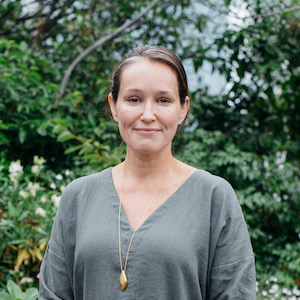The grip of substance use on our society is only strengthening, with one in five Canadians now meeting criteria for the diagnosis of a substance use disorder (SUD) at some point during their lifetime. More people are developing downstream health consequences as a result, leading to increased emergency department (ED) visits.
This grim conundrum piqued the curiosity of Dr. Ashley Smith, a consultant physician at Vancouver General Hospital (VGH), who spearheaded a Physician Quality Improvement (PQI) project aimed at increasing access to addiction medicine specialist care, and in turn, improving care delivery in the ED.
Dr. Smith, who works in the Complex Pain and Addiction Service (CPAS) at VGH, says she relishes the opportunity to help people with SUDs.

“I find it rewarding to work with individuals dealing with substance use issues, as it combines many aspects of medicine – pharmacology and toxicology, population health and psychiatry, to name a few," says Dr. Smith.
She says the involvement of an in-patient addiction medicine team, like the CPAS, has been shown to not only decrease 30-day readmission rates, but also to increase patient engagement with outpatient care.
Perhaps more importantly, however, she says that the CPAS appears to be greatly underutilized, as depicted by the numbers.
Dr. Ashley Smith
“As many as one out of 11 visits to the ED are directly related to SUDs, yet only about half of the patients who might benefit from an addiction medicine consult cite primary substance use disorder as their chief concern," says Dr. Smith.
A key factor in Dr. Smith's strategy involved a large time investment upfront to understand the culture and process in the ED, and to build effective relationships.
“I found the interdepartmental nature of this work very exciting," says Dr. Smith. “Building and strengthening these relationships helped to increase the referral number, by increasing awareness around the goal to improve the CPAS presence in the ED."
She says although the project work was a valuable and enjoyable experience overall, it was not without its challenges.
“Communication was the most difficult aspect of this project," says Dr. Smith. “The ED is comprised of a large multidisciplinary group of health care professionals, patients and services, all intersecting at once, so learning how to communicate salient information effectively was crucial."
Dr. Smith says she was fortunate to have two doctors with emergency medicine and addiction medicine training, Drs. Jessica Hann and Anne Sutherland, to help inform the flow through the ED.
“I relied heavily on discussions and meetings with colleagues and other stakeholders to better understand the process and culture in the ED, and Drs. Hann and Sutherland were both instrumental in this regard," says Dr. Smith.
She looks forward to Dr. Sutherland's PQI project in the ED this fall, and encourages others who might be interested in quality improvement (QI) to enroll in an upcoming training session, and see what inspires them.
“I thoroughly enjoyed the process and will definitely make QI part of my practice moving forward," says Dr. Smith. “I am excited to be building a culture of QI on the CPAS team, and I look forward to further improving delivery of care in the ED."

